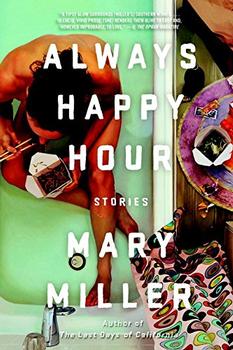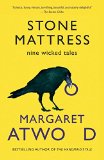Summary | Excerpt | Reviews | Beyond the book | Read-Alikes | Genres & Themes | Author Bio

Fiction
by Colum McCannIn such acclaimed novels as Let the Great World Spin and TransAtlantic, National Book Award–winning author Colum McCann has transfixed readers with his precision, tenderness, and authority. Now, in his first collection of short fiction in more than a decade, McCann charts the territory of chance, and the profound and intimate consequences of even our smallest moments.
"As it was, it was like being set down in the best of poems, carried into a cold landscape, blindfolded, turned around, unblindfolded, forced, then, to invent new ways of seeing."
In the exuberant title novella, a retired judge reflects on his life's work, unaware as he goes about his daily routines that this particular morning will be his last. In "Sh'khol," a mother spending Christmas alone with her son confronts the unthinkable when he disappears while swimming off the coast near their home in Ireland. In "Treaty," an elderly nun catches a snippet of a news report in which it is revealed that the man who once kidnapped and brutalized her is alive, masquerading as an agent of peace. And in "What Time Is It Now, Where You Are?" a writer constructs a story about a Marine in Afghanistan calling home on New Year's Eve.
Deeply personal, subtly subversive, at times harrowing, and indeed funny, yet also full of comfort, Thirteen Ways of Looking is a striking achievement. With unsurpassed empathy for his characters and their inner lives, Colum McCann forges from their stories a profound tribute to our search for meaning and grace. The collection is a rumination on the power of storytelling in a world where language and memory can sometimes falter, but in the end do not fail us, and a contemplation of the healing power of literature.
1
She is falling, ever so faintly, into age. It is not the slowness of rising in the morning, or the weariness of eyesight, or the chest pains that appear with more and more regularity, but the brittleness of memory that disturbs her now—how the past can glide away so easily, how the present can drift, how they sometimes collide—so that when she sees her torturer on television, she is not sure if her imagination is playing tricks, or if he has simply sifted through the sandbox of memory, slid headlong down the channel of thirty-seven years to tease her into a terrible mistake, or if it is truly him, appearing now on the late Spanish-language news, casual, handsome, controlled.
A crisp blue shirt with an open neck. His teeth white against the dark of his skin. A poised offhandedness to the manner in which he holds himself, at a conference, with several others, a row of microphones set up in front of them.
His appearance is so sudden at the tail end of the news that she ...
Both in his afterword and in recent interviews, McCann emphasizes the influence that the experience of being violently punched on the street by a stranger in 2014 has had on his life, and, in particular, on this book. He connects the stories in the collection around this event and therefore to his own life story, adding another fascinating layer to his beautifully written fiction...continued
Full Review
 (526 words)
(526 words)
(Reviewed by Kate Braithwaite).
 The title of the story collection, Thirteen Ways of Looking, is a reference to a poem, Thirteen Ways of Looking at a Blackbird. This poem, a stanza of which prefaces each chapter of McCann's novella, was written by Wallace Stevens in 1923.
The title of the story collection, Thirteen Ways of Looking, is a reference to a poem, Thirteen Ways of Looking at a Blackbird. This poem, a stanza of which prefaces each chapter of McCann's novella, was written by Wallace Stevens in 1923.
Stevens, an American poet, was born in Reading, Pennsylvania in 1879. A Harvard graduate and businessman, he does not conform to the stereotype of the poor poet starving in a garret. Instead, Stevens worked for 40 years at the Hartford Accident and Indemnity Insurance Company, ultimately becoming the company's Vice President.
Before this, though, Stevens lived and worked in New York City and began a separate career as a published poet in the modernist tradition. (Modernist poetry is defined ...

If you liked Thirteen Ways of Looking, try these:

by Mary Miller
Published 2018
Combining hard-edged prose and savage Southern charm, Mary Miller showcases biting contemporary talent at its best. In The Last Days of California, she now reaches new heights with this collection of shockingly relatable, ill-fated love stories.

by Margaret Atwood
Published 2015
Margaret Atwood turns to short fiction with nine tales of acute psychological insight and turbulent relationships.




These are not books, lumps of lifeless paper, but minds alive on the shelves
Click Here to find out who said this, as well as discovering other famous literary quotes!